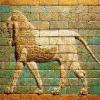Influence of exercise training with resveratrol supplementation on skeletal muscle mitochondrial capacity.
- 1Department of Kinesiology, 330 River Road, University of Georgia, Athens, GA 30602, USA.
Physical inactivity reduces, and exercise training increases, mitochondrial capacity. In rodents, exercise training effects can be augmented by large doses of resveratrol supplementation but whether this can occur in humans with a smaller dose is unclear. This study sought to determine the effects of resveratrol supplementation in combination with exercise training on skeletal muscle mitochondrial capacity. Sixteen healthy young adults were randomly assigned in a double-blind fashion to consume either placebo or 500 mg of resveratrol plus 10 mg of piperine, a bioenhancer to increase bioavailibilty and bioefficacy of resveratrol. Participants ingested the pills daily for 4 weeks and completed 3 sessions per week of submaximal endurance training of the wrist flexor muscles of the nondominant arm. The contralateral arm served as an untrained control. Skeletal muscle mitochondrial capacity was measured using near-infrared spectroscopy. Changes in mitochondrial capacity from baseline to post-testing indicated significant differences between the resveratrol+piperine-trained arm and the placebo-trained arm (p = 0.02), with the resveratrol+piperine group increasing about 40% from baseline (Δk = 0.58), while the placebo group increased about 10% from baseline (Δk = 0.13). Neither the placebo group nor the resveratrol+piperine group exhibited changes in mitochondrial capacity in the untrained arm. In conclusion, low-intensity exercise training can increase forearm skeletal muscle mitochondrial capacity when combined with resveratrol and piperine supplementation.

















































